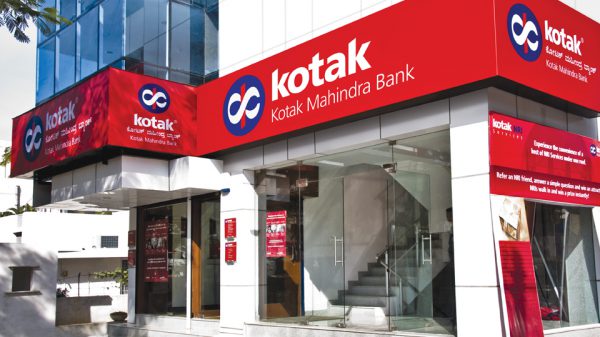What’s the news: Tensions have been high since July 28 during the Parliament’s monsoon session. On Thursday, Congress MP Adhir Ranjan Choudhury made alleged sexist comments about President Droupadi Murmu that sparked heavy sloganeering from the ruling party and Opposition parties alike. With BJP leader Smriti Irani lashing out at Congress leader Sonia Gandhi for the Chowdhury’s comment, MPs continued to sloganeer and gather in the well holding placards. Both houses were adjourned multiple times on Thursday and Friday.
As the situation persists on August 1, MediaNama looks at some of the questions regarding drone regulation, personal data protection, lack of centralised data etc. pending attention since July 29.
Never miss out on important developments in tech policy, whether in India or across the world. Sign up for our morning newsletter, with a “Free Read of the Day”, to experience MediaNama in a whole new way.
Private players can use drone delivery: On Monday, the Ministry of Civil Aviation (MCA) said private players are free to use drones for delivery purposes subject to compliance with Drone Rules, 2021.
In September 2021, the central government notified the Production-Linked Incentive (PLI) scheme to promote the growth of drone manufacturing by private companies. Accordingly, it provides for an incentive of ₹ 120 crores, spread over three financial years.
“The PLI rate is 20 percent of the value addition over three financial years. PLI for a manufacturer shall be capped at 25 percent of total annual outlay. A provisional list of 23 PLI beneficiaries was released on July 6. The beneficiaries include 12 manufacturers of drones and 11 manufacturers of drone components,” said the MCA in its answer.
Further, in a separate query by MP Narhari Amin, the MCA said there were 27 Remote Pilot Training Organizations (RPTOs) authorised by the Directorate General of Civil Aviation (DGCA) by July 20. Of these, three RPTOs are located in Gujarat namely, Blue Ray Aviation Pvt. Ltd., Kaushalya – The Skill University and Sanskardham Drone Academy.
Gig workers not defined in central labour laws: The Ministry of Labour and Employment on Monday said that gig workers are not defined under any existing central labour laws. In reply to queries on whether the government any welfare policy for these workers, the Ministry said that social security benefits for gig workers are envisaged via the Code on Social Security, 2020.
“It is provided in the Code on Social Security, 2020 to set up a Social Security Fund and one of the sources of fund, is contribution from aggregator between 1 to 2% of annual turnover of an aggregator subject to the limit of 5% of the amount paid or payable by an aggregator to such workers,” said the Ministry.
Further, it said that the launch of the e-Shram portal helps to register and create a ‘Comprehensive National Database’ of unorganized workers including gig and platform workers. It captures details of workers working in various occupations such as delivery boy/ partner/ delivery associate for food and grocery/ door-to-door salespersons, etc.
No provisions for personal data protection? MP Derek O’Brien asked the Ministry of Electronics and Information Technology (MeitY) on July 29 whether there are provisions to delete personal data of users making online payments from government servers after “the purpose is served.”
Further he asked, “How is it ensured that once the data is given to government, it is not used for any other reason than it was taken for?”
In reply, the MeitY said the National Data Governance Framework policy is presently under consultation with stakeholders. Further, it confirmed that under rule 6 of the SPDI Rules, personal data of users who have donated to media houses can be shared with government agencies without prior consent from provider for prevention, detection, investigation, prosecution and punishment of offences.
No centralised record of internet shutdowns: Reiterating once again that States are responsible for prevention, detection and investigation of crimes, the central government said that the Union Ministry of Home Affairs (MHA) does not maintain a centralised database of internet shutdowns.
“MHA has informed that centralized database in this regard is not maintained by the MHA. However, the details of permissions granted for internet shutdown by the MHA are available on its website,” said the Ministry of Communications, in the written reply.
It said that state governments are empowered to issue orders for temporary suspension of internet service to maintain law and order under the provisions of Temporary Suspension of Telecom Services (Public Emergency or Public Safety) Rules, 2017. As such, it said that questions about whether the government noticed an increase of internet shutdowns in the last two years “does not arise.”
Still, the government amended the Temporary Suspension Rules, 2017 to not be in operation for more than 15 days following a judicial review by the Supreme Court.
“It has been directed that all suspension orders be published to enable the affected persons to challenge it before the High Court or appropriate forum and the order must adhere to the principle of proportionality. The Temporary Suspension Rules, 2017 has already passed the judicial scrutiny by the apex court, the department does not envisage any further review/amendment of the Suspension Rules,” said the Ministry.
No proposal to reset threshold for designating SSMIs: The MeitY said that there is no proposal to reset the threshold for designating the Significant Social Media Intermediaries (SSMIs). This although MP Tiruchi Siva pointed out in his question that “the current level of 5 million could be burdensome.”
In a separate query, MP K C Venugopal asked whether the government planned to bring in laws to make social media platforms more accountable. Moreover, he asked about plans for introducing grievance appeal mechanisms against arbitrary content moderation, inaction or takedown decisions of big tech companies. However, the MeitY only replied that online intermediaries including social media intermediaries are mandated to develop a robust grievance redressal system for their users under IT Rules 2021.
“They are also expected to remove any unlawful content as and when brought to their knowledge either through a court order or through a notice by the appropriate government or its authorized agency. The said Rules also mandate the significant social media intermediaries (SSMI) to appoint a Resident Grievance Officer in India,’’ said the MeitY.
No breach of Aadhaar Data Vault: Answering questions regarding Aadhaar encryption’s security concerns, the MeitY said that the Aadhar Data Vault (ADV) has not been breached since its creation. Earlier, an October 2020 CAG report questioned the procedure and encryption method of ADV. Acknowledging the report’s suggestion of periodic audits of the ADV by the UIDAI, the government said it conducted Information Security (IS) Audits of 156 out of 164 Authentication User Agencies (AUA) for 2020-21. Similarly, the UIDAI received IS audit reports from 133 out of 169 AUAs for 2021-22.
Regarding Aadhaar precautions, the government said, “Aadhaar number holders should exercise normal prudence in using and sharing their Aadhaar numbers. Alternatively, a partially-masked Aadhaar which displays only the last 4 digits of Aadhaar number can be used. A resident can also use Virtual Identifier (VID) which is an interchangeable 16-digit random number mapped with his/ her Aadhaar number. Further, UIDAI also provides the facility of Aadhaar locking and biometric locking to residents which ensure greater security and privacy of Aadhaar number.”
Since 2019, a total of 1,25,454 duplicate Aadhaars have been cancelled. In an earlier session on July 20, the MeitY said 5,98,999 Aadhaars were cancelled for duplication or other reasons by May 31, 2022.
Centre rejects talks of PDO failure: MP Jawhar Sircar, while asking about the PM-WANI scheme, asked to verify whether Public Data Offices (PDO) have failed to provide privacy and security for data along with the mandatory duty to store users’ data for a year. However, the government dismissed this query by replying “No, sir,” in its written answer.
This post is released under a CC-BY-SA 4.0 license. Please feel free to republish on your site, with attribution and a link. Adaptation and rewriting, though allowed, should be true to the original.
Also Read:
- Army Officers Have A Right To Privacy, Argues This Petition In The Supreme Court
- Linkage Of Aadhaar And Voter ID Completely Irrational, Says Randeep Surjewala’s Petition To Supreme Court
- Internet Shutdowns Are Now Longer Than Ever: Access Now Report
- Compliance Reports By Social Media Platforms Are Unhelpful






























